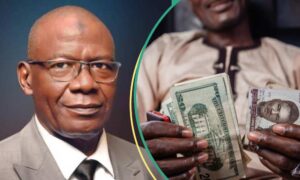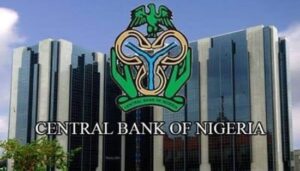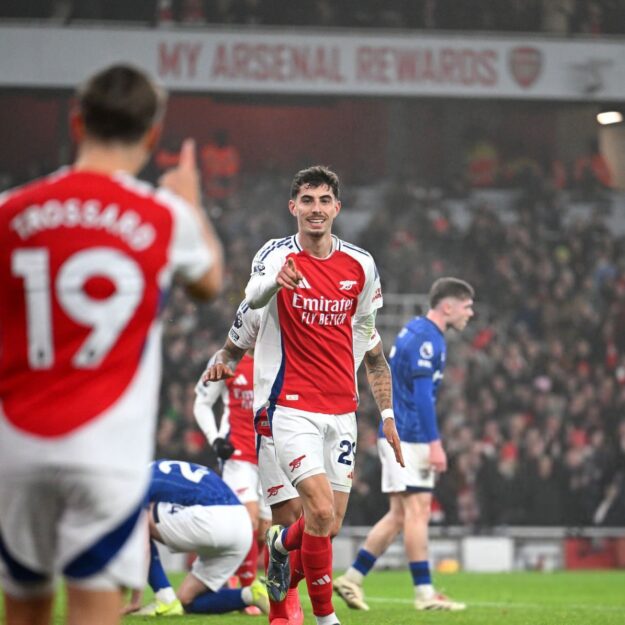Spread the love
Economists have said that the Central Bank of Nigeria (CBN) needs to be more orthodox in its approach to monetary policies as the apex bank currently has too many objectives it is following, hence, things are muddled up.
The economists said this at the recently held First American Business Council (ABC) Economic Update themed: Nigeria’s Debt Overhang and Strategies to Create Economic Growth, hosted by the American Business Council in Lagos.
Dapo Olagunju, MD, JP Morgan West Africa, in a panel discussion, citing an example, said the N23 trillion Ways and Means from the CBN mean the bank is creating money and lending it to the government, which ends up in the financial system, a policy that he called ‘accommodative monetary policy’.
READ ALSO: CBN fines First Bank N13.5m for fraudulent dealings, accounts
He said at the same time, the CBN says it wants to have a tight monetary policy to increase cash reserves, stressing that the two cannot go hand in hand.
Olagunju noted that between 2008 and 2014, the CBN’s participation in the forex market was just 20% because every other person was sourcing his forex from the market. He stated that because of the forex subsidy now, 90% of investors want to source forex from the CBN.
Mokutima Ajileye, MD, P&G Nigeria, who represented the manufacturing sector, concurred that it is not about the rate, but predictability for manufacturers. She said for the manufacturing sector, the major issue is that the monetary authorities keep changing policies.
She said for some of the inputs for localization there is no capacity to meet the needs of the sector.
Delivering the keynote address, the chief economist and partner, KPMG, and former statistician general, National Bureau of Statistics, Dr. Yemi Kale, said that 62 per cent of the Nigerian economy relies on the oil industry, although the oil industry constitutes merely 7% to the country’s gross domestic product (GDP).
READ ALSO: Subsidy removal: Inflation may hit 30% in June, expert warns
Dr. Kale said although the oil industry merely contributes 7% to the country’s GDP, many other sectors depend on it for survival. He stressed that oil and all the other sectors that depend on the oil industry constitute about 62% of Nigeria’s GDP.
He noted that it would be difficult for the sectors that contribute the smaller portion of GDP to grow the economy out of the doldrums. He stressed that the oil industry has been producing sub-optimally due to the activities of oil thieves in the Niger Delta, which had reduced foreign investments into the country over the last decade.
“In reality, 62% of the economy depends on whatever happens in the oil sector, and that is why we keep remaining in that challenging situation,” he said.
He said oil growth has been contracting for 24 of 36 quarters since 2015, an average of -5%. He added that we are going to need oil to diversify the economy because we need the oil revenues to invest and transform the economy.
You may be interested
Arsenal To Offer Kiwior In Swap Deal For Super Eagles Star
Webby - December 28, 2024Arsenal are reportedly considering a January move for AC Milan Nigerian international Samuel Chukwueze as Mikel Arteta eyes cover for…

No Club Is Superior To Us –Inter Milan Striker, Thuram
Webby - December 28, 2024Marcus Thuram has said there’s no team superior to Inter Milan as the Serie A giants strike fear into oppositions.The…

Nigeria Vs Ghana Live Blogging – CHAN 2024 Qualifier, Second Leg
Webby - December 28, 2024Completesports.com’s live blogging of the CHAN 2024 Qualifying match between the Super Eagles B of Nigeria and the Black Galaxies…





















![American Pastor, David Wilson Seen Eating The Box Of Woman Who Isn’t His Wife [Video]](https://onlinenigeria.com/wp-content/uploads/2019/10/american-pastor-david-wilson-seen-eating-the-box-of-woman-who-isnt-his-wife-video-150x150.jpg)









